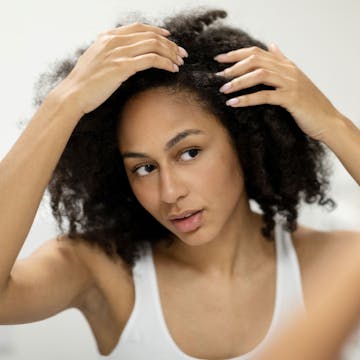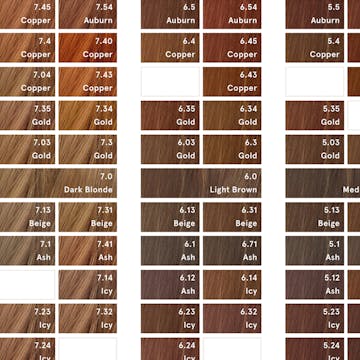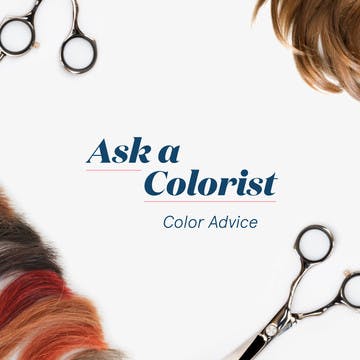Ask a Colorist: Are Silicones Bad for My Hair?
Get to know one of hair care’s most misunderstood ingredients.
When it comes to hair care, there’s a lot of silicone slander out there. In recent years, it seems like everyone has been talking about the pitfalls of using silicones on your strands, with silicone-free products often being recognized as “better” for your hair. So let’s get straight to it—are all silicones bad for your hair? In short, it depends on what you mean by bad.
Much like many other hair care ingredients, there are pros and cons to consider depending on hair type, concerns, and goals. So we sat down with our colorists to learn more about silicones, why they might be in your hair care products, and how to decide if they’re a good fit for you.
What are silicones?
So let’s start at the beginning. Silicones describe a family of lab-made ingredients derived from silica, which is essentially the same stuff that makes up sand. While it might sound odd to have sand in your hair care, silicones come in many different makeups, shapes, and forms and are used far beyond the hair care industry. You can also find them in everyday products like kitchen utensils, medicine, and makeup.
What are the different types of silicones in hair care?
As we briefly mentioned above, there are many different types of silicones that have different roles to play. In hair care, we generally discuss these three silicone types:
Water-soluble Silicones
As you might have guessed, this type of silicone dissolves in water, so it easily washes away when you cleanse your hair. You might find these in products such as conditioners and styling products.
Non-soluble Silicones
Unlike water-soluble silicones, non-soluble silicones need more than water to be removed from the hair. This type of silicone can only be removed from the hair with surfactants commonly found in most shampoos. You may find non-water-soluble silicones in hair serums or anti-frizz shampoos and conditioners.
Evaporating Silicones
Instead of using water or shampoo, this type evaporates from the hair as it dries so that it does not leave a long-lasting residue. You may see evaporating silicones in leave-in hair care products, color cosmetics, and antiperspirants.
What are the benefits of silicones in my hair care products?
Most stylists agree that silicones are filled with frizz-taming magic. When applied to the hair, they form a thin, protective coating around the hair cuticle to seal in moisture and shield against humidity.
This thin barrier also provides some thermal protection, which helps to reduce heat damage from heat-styling tools like blow dryers and flat irons. Additionally, silicones may also prevent color fade, make hair more manageable, and enhance shine and softness. The result is healthier-looking hair with a frizz-free, shiny finish.
What are the drawbacks of silicones in my hair care products?
The main reason people are wary of silicones in their hair care routine is the potential for buildup to occur. Since silicones form a coating around each strand of hair, some people are concerned that this could block out other hair-healthy ingredients from penetrating the hair. This is mainly a concern for non-water-soluble silicones (like dimethicone) as they are water-resistant and may be harder to wash out. For a deep cleanse that removes any lingering products, a good clarifying shampoo should get the job done if used properly.
If you’re concerned about product buildup in your hair, water-soluble silicones (like amodimethicone and stearoxy dimethicone) are a much safer bet as they should wash out easily with a standard shampoo. That said, there are plenty of products on the market that are silicone-free if you choose not to incorporate these chemical compounds into your routine. It’s your hair! So do what makes you feel the most comfortable.
Bottom line. Are silicones bad for your hair?
Scientifically speaking, silicones are perfectly safe for your hair. However, they may not be right for certain hair types depending on your hair texture, goals, and habits.
People with coarse, dry, frizz-prone, or curly hair often see the best results from products fortified with silicones. They can also be a great supplement to your daily routine for whenever you heat style your hair as they can help prevent heat damage and give hair some added polish. Both our Velvet Primer and Triple Prep styling products use silicones to give heat-styled hair protection and a silky-smooth finish.
If you have thin or fine hair, you may want to keep track of how silicone-infused products affect your hair. You may want to use them less frequently or remove them entirely from your routine if you notice your hair feels oily or heavy after using these products.
No matter your hair type, moderation is key and it’s important to know what type of silicones are being used in the products you love. If you want the shine-boosting, frizz-reducing benefits with less concern for buildup, stick to water-soluble silicones or evaporating silicones (like cyclomethicone and cyclopentasiloxane).
So there you have it! Despite their bad rap, silicones are safe to use on hair and incredibly effective at boosting shine, reducing frizz, and making your hair more manageable. To reduce the risk of product buildup while soaking in the benefits of silicones, check out the ingredients list to see if they contain water-soluble or evaporating silicones. And remember to wash your hair thoroughly (or incorporate a clarifying shampoo into your hair care routine) to ensure that silicones are helping your hair reach its full potential.





